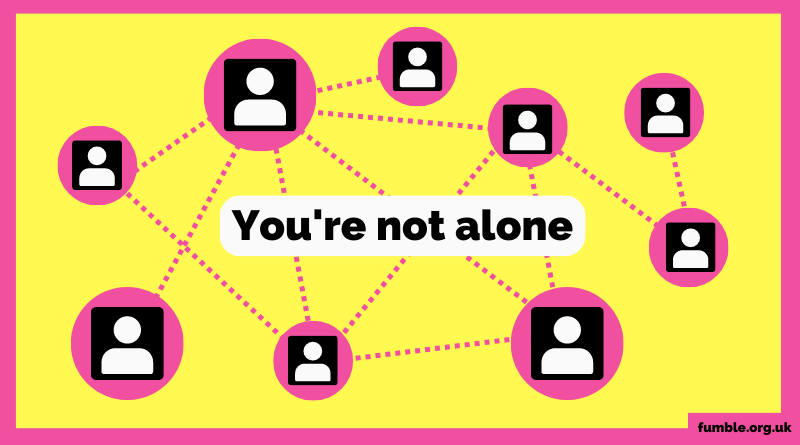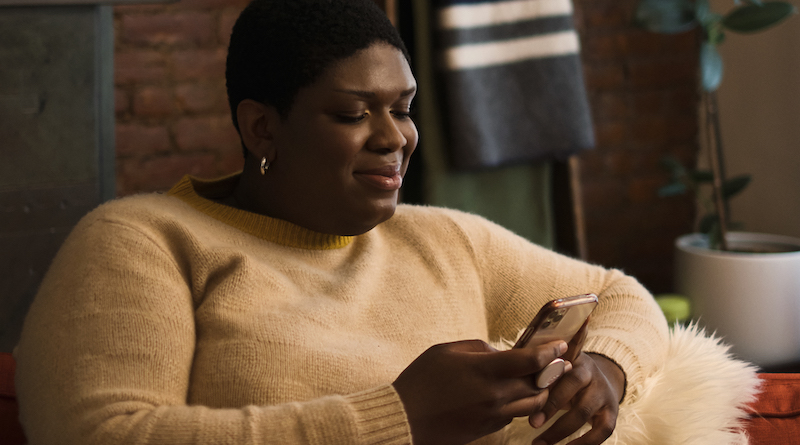While the COVID-19 lockdowns are hopefully behind us, isolation can impact you any time – we have some tips to stay connected
This content was originally part of our Pandemic support series: to address the chaos and uncertainty of the COVID-19 pandemic, and to support young people with navigating this difficult time.
Although many of us may feel we’re now in a post-pandemic era, this content will still be relevant to lots of people. There are still many people who rely on communicating, building relationships and accessing support online, whether they continue to shield from COVID-19, have long Covid, or have any other chronic illness that means they have to limit in-person social contact. There are still lots of reasons why we may need some extra support right now, and no one should feel excluded from society or unable to access the support they need.
In the past few years it has been increasingly difficult to stay in touch with those we love. And not being able to see our friends may make you feel sad and disconnected. But even during times of separation or isolation, there are lots of ways to stay connected.
1. Communicate as much as possible
During difficult times it’s easy to retreat into ourselves, or not ask for the support that we need. So the best way to combat feelings of disconnection or loneliness is to communicate with others. It’s normal to feel lots of different emotions during uncertain times, you may feel sad, angry, hopeless, or anxious, and that’s okay. However, if you’re finding that your mental health is really suffering, there are still online services available to help you. You don’t have to suffer alone.
The video below is a really good overview of how to communicate effectively using the practice of active listening:
2. Create a routine
Do you have several friends you’d like to stay in touch with? Instead of video-chatting or calling them all in the same day — which can be draining for both you and your phone battery — try and create a routine where you call different people on different days. Creating a routine will mean you’ll always have something to look forward to each day, which is really important when the days feel like they pass by slowly.
3. Diversify your activities
In an age of technology there are so many ways to communicate with loved ones, so make the most of it. Video calling is fantastic, but why not add some diversity to your communication with friends? You could play a quiz one night, or even do some fun lessons together if you’re still not in school. Even if it’s something as simple as sending a funny video to your friend, or leaving them a voice message instead of texting, giving your communication some variety can be a fun way to stay connected.

4. Imitate normality
When things feel uncertain, anything that feels close to normality is welcome. So, try and imitate normality as much as possible in your interactions. If you’d usually have regular meet-ups with your friends, replace these with video calls. Or if you’d have regular film nights, try watching a film at the same time, commenting on the film as you watch it. With new inventions, such as Netflix party, this is even simpler now more than ever.
5. Plan for the Future
Look to the future, because although it feels really hard in the moment, periods of isolation or separation won’t last forever. There will come a time when you’re able to see your friends much more, and even resume your usual activities. So plan for that time and give yourself something to look forward to while isolated or separated from the people you love.
Discover Fumble’s pandemic support series
The pandemic has had a huge impact on all of our lives, and we’ve all struggled to adapt to the changes that continue to happen all around us.
Our pandemic support series explores young people’s experiences of COVID-19, and helps you start to make sense of the chaotic and uncertain time we’re living in. Discover the full series here.
Other support
- Relationships when you’re shielding
- How to survive a long-distance relationship
- How to communicate in relationships
- YoungMinds – Mental health support and advice
- Brook – Mental health and emotional support
Read more
Last Reviewed 25 October 2023
Image Credit: Alyza Enriquez via The Gender Spectrum Collection



